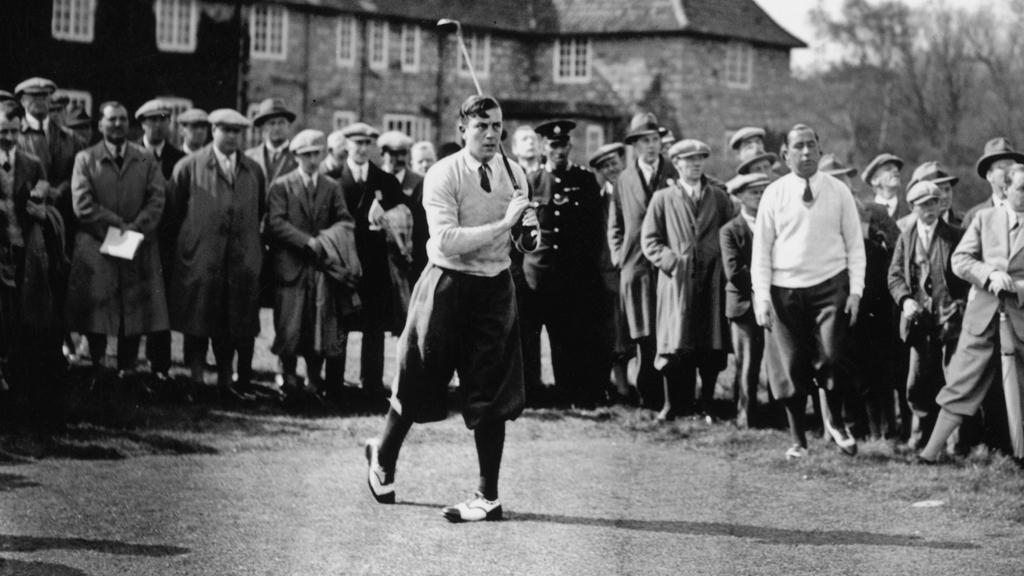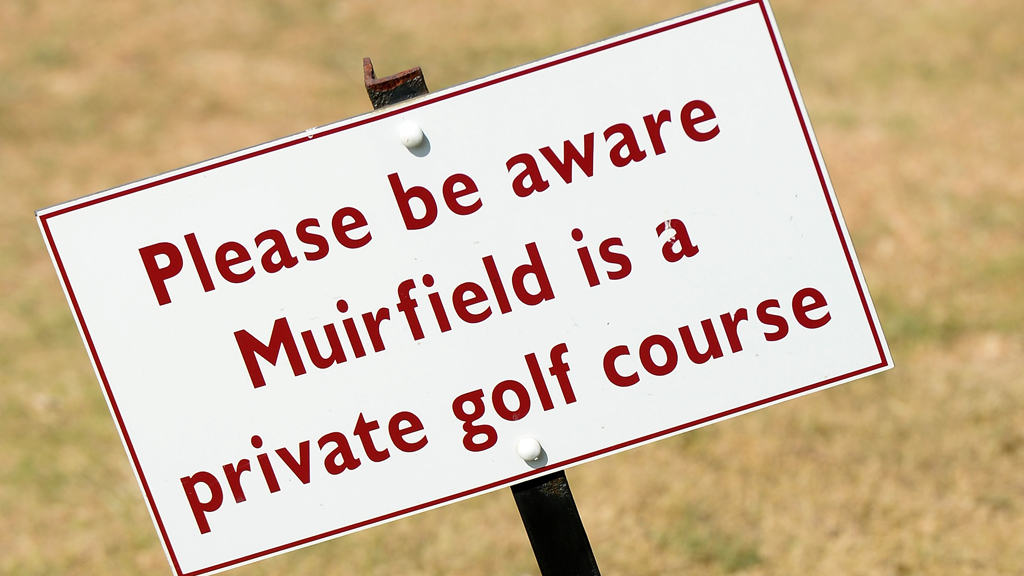It’s a man’s world at Muirfield, home to the 2013 Open
The 2013 Open golf championship at Muirfield is causing more controversy than most. In an age of equality, Channel 4 News asks why it is still legal to ban women from joining a golf club.

Equalities Minister Maria Miller says it sends out “the wrong message”. Sports Minister Hugh Robertson says it is “very, very out of touch”.
The politicians, usually desperate to ingratiate themselves with sporting superstars, are taking a very public swing at the Honourable Company of Edinburgh Golfers – otherwise known as Muirfield Golf Club.
Founded in 1744, the host of this year’s Open Championship does not allow women members, a tradition Scotland’s First Minister Alex Salmond has branded “indefensible”.
Indefensible it may be – but illegal it is not.
Under equality legislation, private associations such as Muirfield can restrict membership. For example, a club for deaf people does not have to admit a blind person; a Christian association can solely accept Christian people; and a men’s golf club does not have to allow women members.
Its history and membership base appeals to ideas of social exclusion and privilege. Dr Helen Pankhurst
But according to Shah Qureshi, partner and equality law specialist at Bindmans, there is an “incredible anomaly” with the law as it stands: “The equality act, on one hand, does not ban single-sex clubs, but on the other hand clubs with male and female members are not allowed to discriminate on the basis of gender.
“If a woman joins a golf club and is only allowed to play on weekdays because she’s a woman, that would be unlawful.
“I would hope that in the 21st century an anomaly like this would be addressed, otherwise you have a situation where clubs that have both male and female members can’t discriminate, but single-sex clubs can.”

Additionally, while associations can limit membership on the basis of sex, religion, disability and even ethnic origin, they cannot reject people on the basis of colour.
Muirfield is acting entirely within the law, and it is not alone. The Royal and Ancient Golf Club (R&A), which organises the Open, points out that around 1 per cent of golf courses have single-sex membership policies and around half of those are women-only.
The R&A is also keen to highlight that women can still play courses like Muirfield – they just cannot become members.
‘A world of the past’
Golf was targeted by the suffragette movement in 1913 because it was seen as a sport of the ruling classes. “Votes for women” would appear carved on manicured greens, and clubhouses were set on fire.
Dr Helen Pankhurst, Sylvia Pankhurst’s granddaughter, told Channel 4 News her ancestors would be “saddened” that some courses still operate single-sex membership policies: “Golf remains a symbol of men-only privilege and a world of the past.”
These clubs need to wake up and smell the 21st century, because women aren’t going anywhere. Caroline Criado-Perez, equality campaigner
She added: “Its history and membership base appeals to ideas of social exclusion and privilege and they have to ask whether they hold on to that at the cost of their own existence.”
That is a view shared by modern-day equality campaigners such as Caroline Criado-Perez: “It is an outrage that we can still contemplate with relative equanimity women being excluded from anything simply on the grounds of tradition, status quo, and ultimately, the fact that they are women.
“These clubs need to wake up and smell the 21st century, because women aren’t going anywhere.”
Augusta, home to the US Masters, admitted its first two female members – former secretary of state Condoleezza Rice and business executive Darla Moore – in 2012.
Two high-powered, high-profile American women shattered golf’s glass ceiling stateside, but the shards of revolution failed to reach Muirfield – the Honourable Company of Edinburgh Golfers remains a patriarchal bastion.